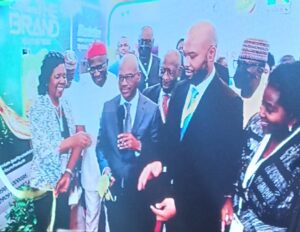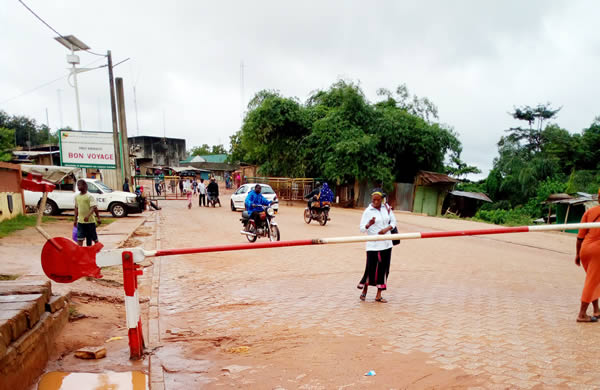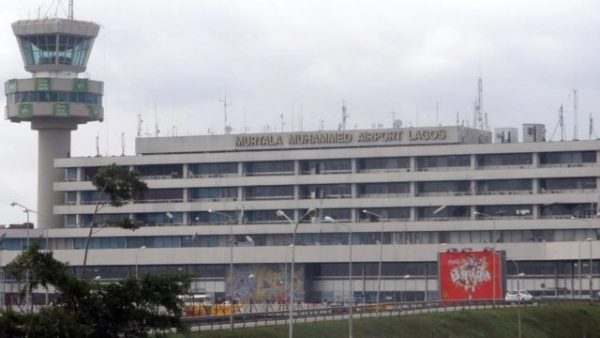OTL 2021: How PIA Will Transform Nigeria’s Oil Sector – NNPC

By Kenneth Jukpor
The Nigerian National Petroleum Corporation, NNPC, has outlined some advantages in the Petroleum Industry Act (PIA) that should spur investments in the midstream and downstream gas development and completely transform the nation’s oil sector.
NNPC’s Group Managing Director, Malam Mele Kyari argued in his keynote presentation at the ongoing 15th edition of Oil Trading Logistics (OTL) Africa Downstream Conference, that PIA has provided certainty around investment in natural gas with a clear fiscal regime for gas development.
Kyari, who was represented by the Group Executive Director, Downstream, Mr. Adeyemi Adetunji, described the PIA as a first in the history of Nigeria’s Oil & Gas industry, stressing that the Act provides for ten (10) years tax holiday for investment in gas pipeline among other fiscal incentives.
On gas monetization, he noted that PIA imposes penalty on licensees, lessors or marginal field operators that flares gas, a move that promotes the Gas Flare Commercialization and aids projects funding from the Midstream and Downstream Gas Infrastructure Fund.
“Penalty is not eligible for cost recovery or be tax deductible (S.104) and requires licensees or lessees producing natural gas to submit gas flare elimination and monetization plan to the Commission in line with the prescribed regulations, within 12 months of the effective date (S.108),” he said.
He observed that ain bid to move encourage the utilization of cleaner fuels to dissipate carbonization, the Federal Government has approved a project that would convert one million vehicles from utilizing premium motor spirit (PMS) to gas.
According to him, the transition to gas fuel provides investment opportunities in Autogas via conversion of petrol and diesel-powered automobile engines to natural gas use.
“This involves provision of conversion kits and establishment of centers to convert vehicles, building of CNG and L-CNG facilities, and deployment of CNG/LNG trucks to achieve the 1 million vehicles target. Investors need to sharpen their management practices to strategize to enable them to seize the investment opportunities under PIA,” he said.
The NNPC boss opined that the theme of the event: “Downstream in Transition: Getting Set” has underscored the reality of Nigeria’s Oil and Gas industry, not just the Downstream sub-sector, at this time of PIA 2021 implementation in the country and the global energy transition and decarbonization.
“It sounds the timely call for urgent action by stakeholders to swim with the tide, unlock opportunities and continuously stay innovative to survive the dynamic business environment,” he posited.
Meanwhile, the Governor of Lagos State, Mr. Babajide Sanwo-Olu said that his administration is fully committed to ensuring energy security and deepening the utilization of cleaner fuels in the state to ensure a safe and sustainable environment for its residents.
The Governor of Lagos State made the commitment in a goodwill message he delivered at the OTL Conference where he was represented by the Commissioner for Energy and Mineral Resources, Lagos State, Engr. Olalere Odusote.
Governor Sanwo-Olu observed that some of the current initiatives of the State government in the sector included Lagos State Gas Policy as his administration recognized the need for an enabling environment supported by a clear and unambiguous statement of intention by the government to boost domestic utilization of natural gas in the State and foster investment in the gas sector.
In his welcome address, the Chairman of OTL Africa Downstream Conference and Exhibitions, Dr. Emeka Akabogu noted that the Petroleum Industry Act has come with a raft of changes, stressing that the conference provided a platform to explore and deliberate the issues.
“With the PIA, activity across the industry is largely in a flux. There’s also a great deal of uncertainty in the industry, with many questions begging for answers. It is in the context of all these that we are poised for this year’s event with the theme – Downstream in Transition: Getting Set.”
“The sessions reflect the crucial issues which the industry must address, and seek to find a path to clarity, increased investment and confidence. Mergers and acquisitions are active in the fuel retail space which we will be considering, while safety and efficiency remain crucial to profitability in shipment of petroleum products, particularly in the Gulf of Guinea,” Akabogu said.






